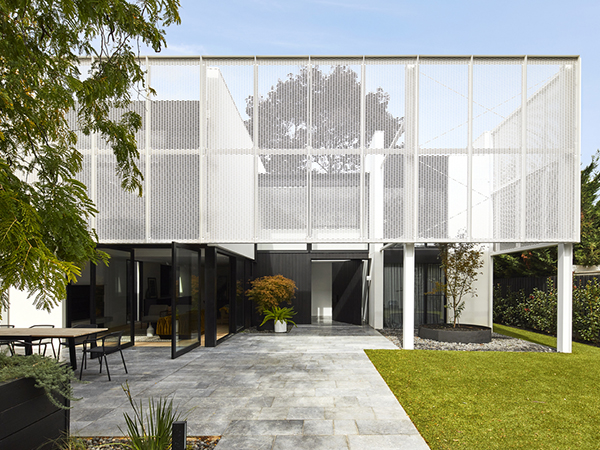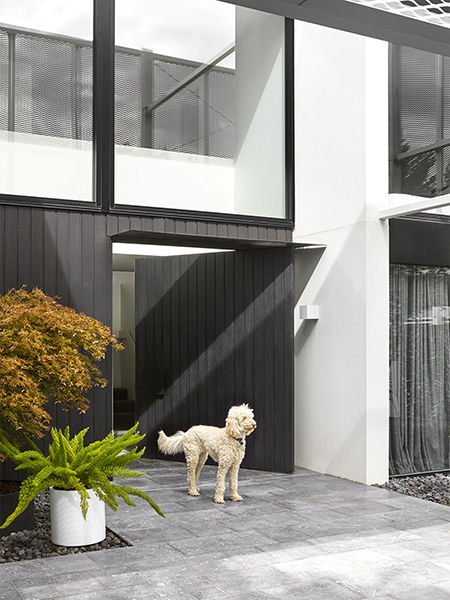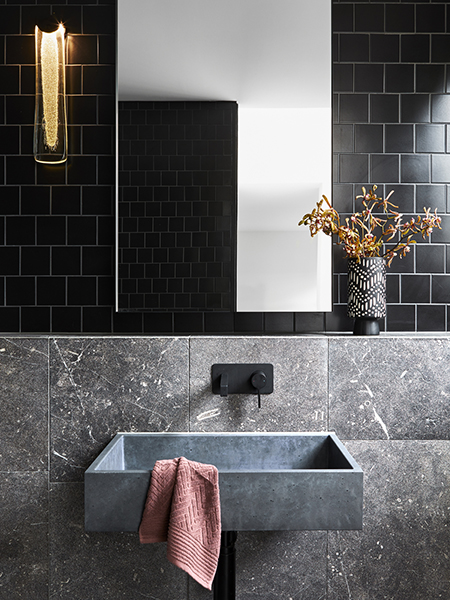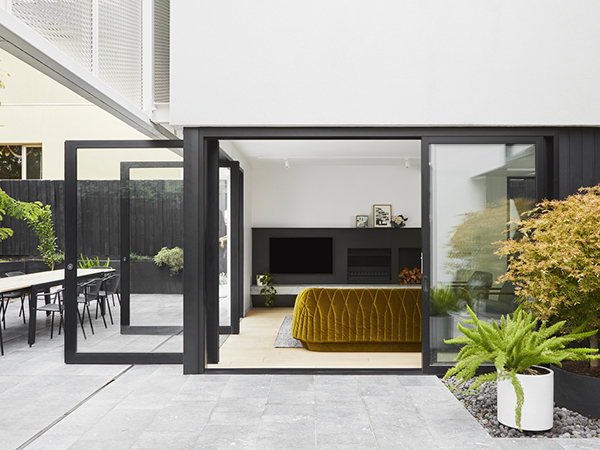From the architect
Originally a 1960s dwelling which saw a brief refurbishment in the 1990s, this project saw NTF work with the bones of the house to not only create something contemporary but remain resourceful.
The clients brief called for an open plan home, with generous living spaces on both the ground and first floor. The original floor plan showed restraints in the functionality of day-to-day living, so an emphasis was placed on creating a family home centred around easy living.

The clients loved the idea that they could completely open up the living zone to allow a seamless flow from the inside to the outside, something that the old house did not allow for. Large full-height doors allow the flexibility to control how the internal and external living spaces connect.

The space was made seemingly smaller by ceilings that hung lower, and floor levels that could not be changed. In order to alleviate this sense of enclosure, double height voids in areas both internally and externally have been introduced to emphasise the sense of space and create much larger volumes.
The play on scale has created not only an interesting design detail but has opened up the space in way the old house did not allow for. In particular, the void at the entrance also allows for a better connection between the ground and the first floor.
The size of the new kitchen has been increased by bringing the working space right out to the boundary line, adds both size and functionality, without compromising the overall area of the living and dining area. A skylight runs directly above the kitchens floor path which continues the connection to the outside that we see throughout the rest of the house.

As the property faces north, a large screen wraps around the façade of the house, to not only offer the first floor privacy to the street, but also as passive shading to the north facing windows.
Upon meeting with clients, there is always a push towards using the original bones of the house. Not only does this acknowledge the characteristics of the original dwelling and its setting, but it also ensures practicing sustainable design.
This project saw the use of existing structures and materials, which were not only beneficial in terms of costings, but also allowed for an incorporation of a visually striking design feature. The new home now showcases original glass bricks that run vertically up the south side of the house, a contemporary adaption to a classic 1960s trend.


